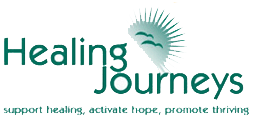I’ve just finished my seventh week of the intermittent fasting program. Two days a week I limit my calories to 600, eating mostly low glycemic vegetables. It was 500, but Dr. Alschuler has upped it to 600 so I can have some fat during those two days. One tablespoon of olive oil is 120 calories. One tablespoon of coconut oil is 131 calories. I try to have one of each on my fasting days.
During those two days I take lots of targeted supplements, designed to stress the cells of my body. Because this is a new protocol, Dr. Alschuler is continuing to learn more as we go. Last week I started taking the supplements for three more days after the fast because the cells are still vulnerable. I’ve learned that the fasting has more of an effect than just taking the supplements (except for the Niacin flush I get from taking Niacin).
I’ve become aware of how drastically what we eat affects how we feel on a daily basis. Without protein, I feel tired, hopeless, discouraged, and irritable. Adding even a tablespoon of pumpkin seeds makes a difference in my emotions.
I won’t really know what impact this is having on my cancer until I have my scan in June, but my cancer antigen blood test was lower after only a month. I have a lump I can feel under my arm, and I think it has gotten smaller, but it could be wishful thinking. For sure it hasn’t gotten any larger.
There has been so much research on how intermittent fasting makes chemotherapy more effective that I don’t know why every doctor isn’t recommending it. It’s not easy to do, but I’m sure it’s easier than chemo. If you Google “intermittent fasting and cancer” you will find lots of articles.
Kelly Turner’s book, Radical Remission: Surviving Cancer Against All Odds, just came out and she writes about how so many of the people she interviewed who had remissions from cancer had used fasting in some way as part of their healing. It gets rid of toxins and seems to get the immune system functioning.






Learning of your emotional response to foods is informative. It provides space and understanding for me as I investigate my food intake and reactions. Thanks for being the role model that you are, Jan.
Peaceful and healing thoughts are being sent to you…
I take courage from your determination and experiences. Pumpkin seeds and emotions! We do have choices, don’t we? Just a Tb makes a difference. Now imagine what the gallons of love being delivered to you each day is doing!